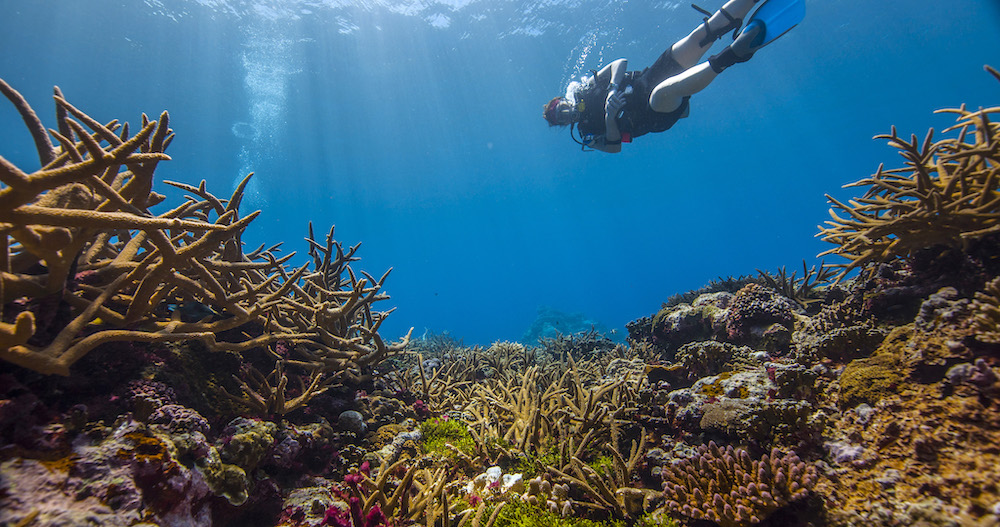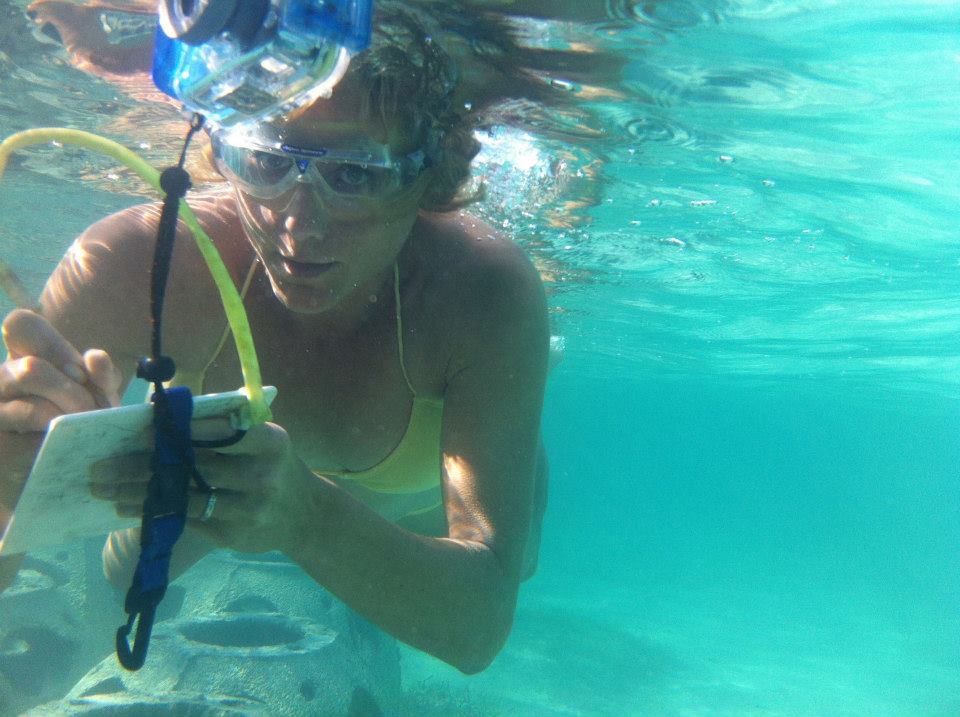When we talk about biodiversity and climate change, generally our conversation will drift towards the Amazon or other terrestrial diverse locations that we’ve seen on Nat Geo. Usually, after that we inevitably have to bring up the variety of species that live in that environment, “Ooo, look at that weird bird!”. From our previous article about diversity within an ecosystem we know that without a strong variability in species type, the biodiversity of an ecosystem will struggle, and could fail, in some cases.
 When we talk about the marine environment, sometimes the discussion about the importance of biodiversity doesn’t make its way to the forefront. But much like its terrestrial counterparts, the ocean needs to be just as diverse to survive. One main component in providing this species variability is a coral reef. Most people, even those who don’t scuba dive or snorkel, know about the importance of coral reefs and that we are losing too much coral around the world. The Great Barrier Reef is a strong example of what could be the future of coral if we don’t do something soon.
When we talk about the marine environment, sometimes the discussion about the importance of biodiversity doesn’t make its way to the forefront. But much like its terrestrial counterparts, the ocean needs to be just as diverse to survive. One main component in providing this species variability is a coral reef. Most people, even those who don’t scuba dive or snorkel, know about the importance of coral reefs and that we are losing too much coral around the world. The Great Barrier Reef is a strong example of what could be the future of coral if we don’t do something soon.
Astoundingly, coral reefs only cover less than 0.5% of the global sea floor, but they contain nearly 25% of marine species, providing protection and shelter for breeding and spawning species. The delicate chemistry of the ocean is changing due to rising temperatures from climate change. This shift is causing large-scale coral bleaching around the world, as we see with the Great Barrier Reef in Australia. Scientists have made some devastating predictions that the majority of the reef will be bleached in the year 2050!
To combat this destruction there have been pushes to increase protection of coral reef areas, implementing  MPAs (marine protected areas) and decreasing the unsustainable and harmful fishing practices. However, there are many who are unsure whether this will be enough. One small thing that gives us hope is the productivity of coral reef “farming”, which has seen an increase in viability and larval dispersal. This solution, along with coral transplantation, may only be successful on a local level but could have a global effect. However, we must keep in mind that without drastically reducing the CO2 levels in the atmosphere, it seems like we are on a fast train with no breaks.
MPAs (marine protected areas) and decreasing the unsustainable and harmful fishing practices. However, there are many who are unsure whether this will be enough. One small thing that gives us hope is the productivity of coral reef “farming”, which has seen an increase in viability and larval dispersal. This solution, along with coral transplantation, may only be successful on a local level but could have a global effect. However, we must keep in mind that without drastically reducing the CO2 levels in the atmosphere, it seems like we are on a fast train with no breaks.
Coral reefs are vital to the sustainability of a biodiverse marine ecosystem. Period. But everything is connected, just like it is on land. By limiting the amount of detrimental fishing, protecting certain species, we are increasing the chance that a reef will survive. In addition, reducing the amount of CO2 globally, we can reduce the rise in temperature which can slow the change in ocean chemistry. All of these steps can help coral reef vitality and should be something we hold as a priority!
It is our responsibility to enact change, and it is our responsibility to reduce our impact on delicate ecosystems.
Biodiversity is in our hands… how will we respond?



